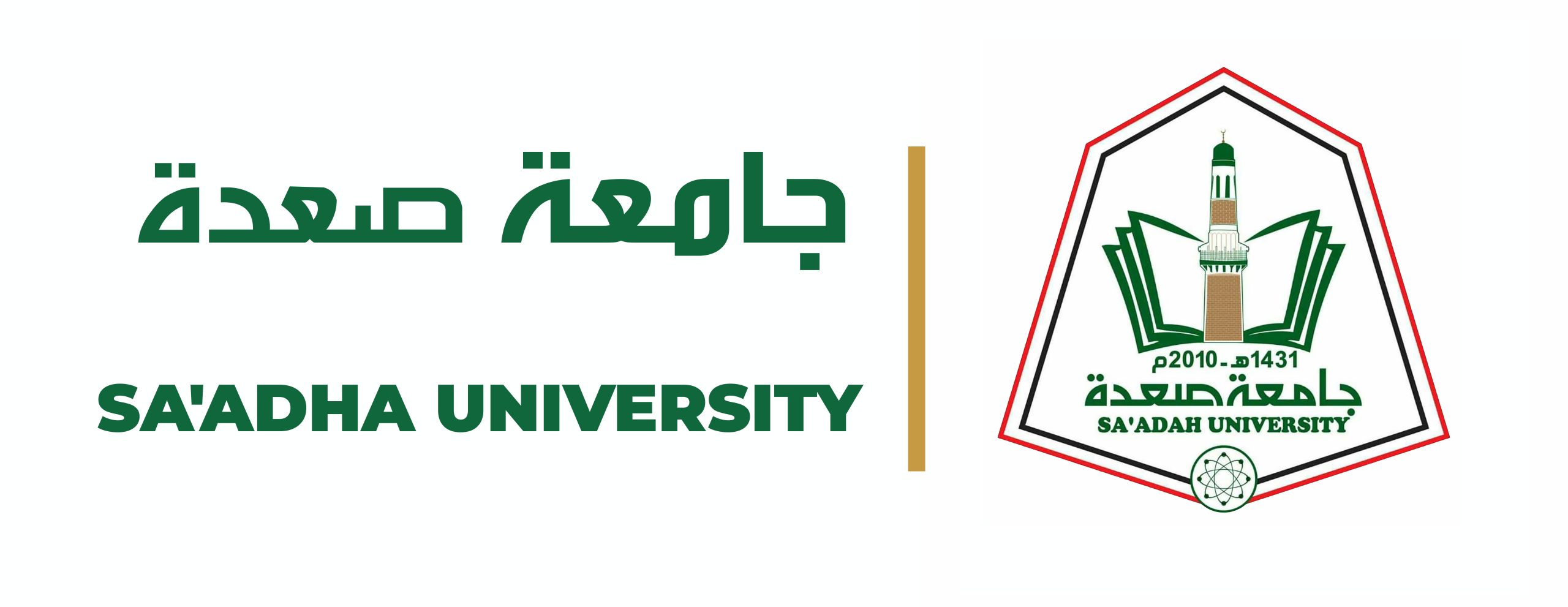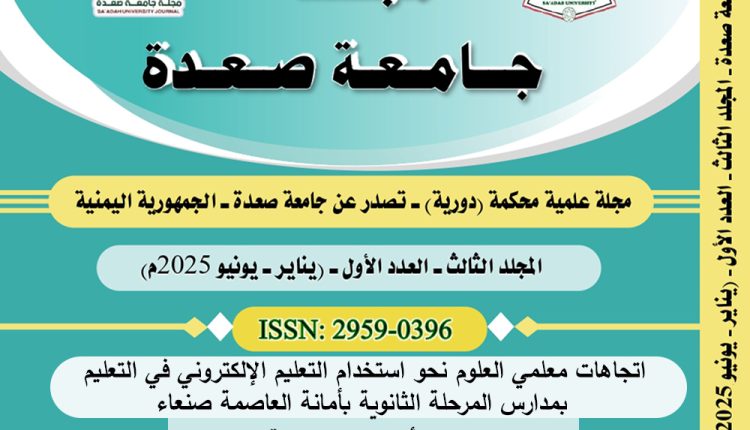اتجاهات معلمي العلوم نحو استخدام التعليم الإلكتروني في التعليم بمدارس المرحلة الثانوية بأمانة العاصمة صنعاء
اتجاهات معلمي العلوم نحو استخدام التعليم الإلكتروني في التعليم
بمدارس المرحلة الثانوية بأمانة العاصمة صنعاء
إعداد: محمد أحمد صالح ثوابة
أستاذ مساعد بكلية التربية، جامعة صعدة
الملخص:
هدفت الدراسة إلى معرفة اتجاهات معلمي العلوم نحو استخدام التعليم الإلكتروني في التعليم بمدارس المرحلة الثانوية بأمانة العاصمة صنعاء، ولتحقيق هدف الدراسة اُستخدم المنهج الوصفي التحليلي، وتم إعداد أداة الاستبانة والتحقق من صدقها وثباتها، وطبقت على عينة الدراسة بنسبة 30% والتي تم اختيارها بالطريقة العشوائية الطبقية من مجتمع الدراسة، حيث بلغت (76) معلما ومعلمة، بواقع (36) معلما، و(40) معلمة، ممن يدرّسون مناهج العلوم (الفيزياء، الكيمياء، الأحياء) في المدارس الثانوية، وكان من أبرز نتائج الدراسة: وجود اتجاهات إيجابية لدى معلمي العلوم نحو استخدام التعليم الإلكتروني في التعليم بمدارس المرحلة الثانوية بأمانة العاصمة صنعاء، حيث بلغ المتوسط الحسابي الكلي لتقدير أفراد العينة (3.25)، وبنسبة مئوية بلغت (65%)، كما تبين عدم وجود فروق ذات دلالة إحصائية عند مستوى دلالة (0.05) بين متوسطات استجابات أفراد العينة حول اتجاهات معلمي العلوم نحو استخدام التعلم الإلكتروني في التعليم بمدارس المرحلة الثانوية بأمانة العاصمة صنعاء تبعا لمتغير الجنس ومتغير التخصص.
الكلمات المفتاحيّة: اتجاهات، معلمو العلوم، التعليم الإلكتروني، مدارس المرحلة الثانوية.
اضغط هنا لفتح أو تنزيل الملف
Attitudes of Science Teachers Towards the Use of E-learning in Education in Secondary Schools in Sana’a, the Capital
By: Muhammad Ahmed Saleh Thwaba
Assistant Professor of Educational Technology, Faculty of Education, University of Sa’adah
Abstract: The study aimed to know the attitudes of science teachers towards the use of e-learning in education in secondary schools in the capital Sana’a. To achieve the objectives of the study, the descriptive and analytical methodology was used, and the questionnaire tool was prepared and verified for its validity and reliability. It was applied to a 30% study sample that was chosen randomly. The class of the study population reached (76) male and female teachers, with (36) male and (40) female teachers, who teach science curricula (physics, chemistry, biology) in secondary schools. One of the most prominent results of the study was: the presence of positive attitudes among science teachers towards the use of e-learning in education in secondary schools in the capital Sana’a, where the overall arithmetic mean of the sample members’ rating was (3.25), with a percentage of (65%), and it was also shown that there were no differences. It is statistically significant at the level of significance (0.05) between the averages of the responses of the sample members regarding the attitudes of science teachers towards the use of e-learning in education in secondary schools in the Sana’a capital, Sana’a, according to the gender variable and the specialization variable.
Keywords: directions, science teachers, e-learning, secondary schools.

